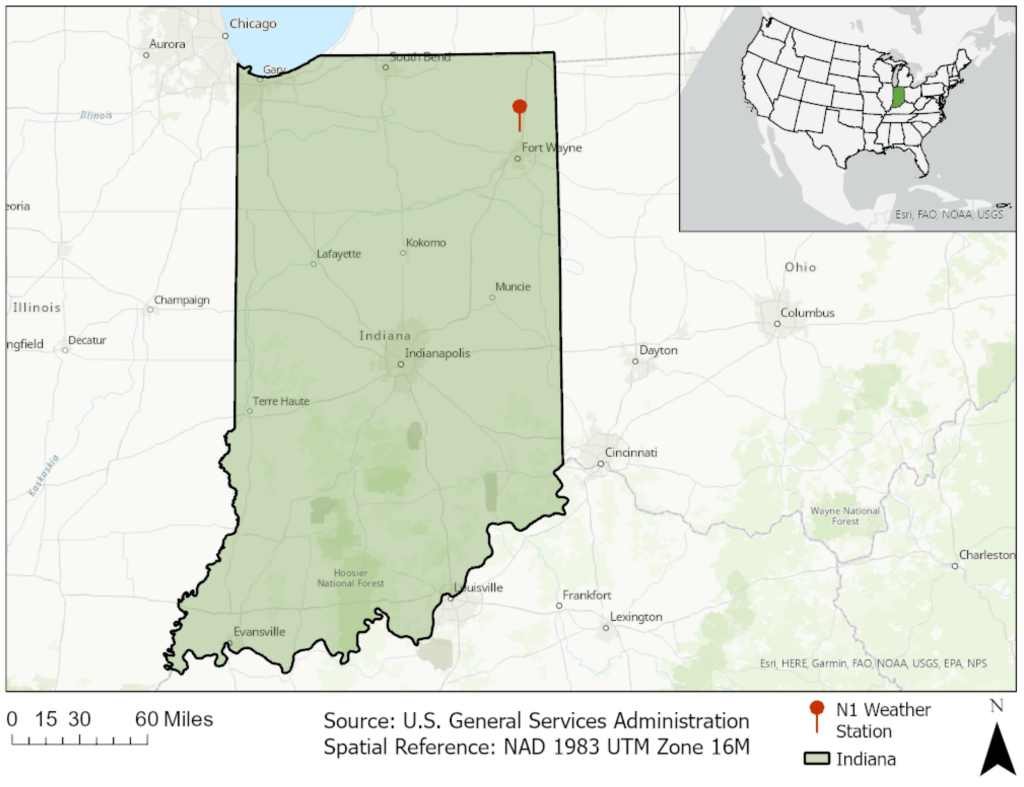Subsurface soil moisture is a primary determinant for root development and nutrient transportation in the soil and affects the tractability of agricultural vehicles. A statistical forecasting model, Vector AutoRegression (VAR), and a Long Short-Term Memory network (LSTM) were developed to forecast the subsurface soil moisture at a 20 cm depth using 9 years of historical weather data and subsurface soil moisture data from Fort Wayne, Indiana, USA. A time series analysis showed that the weather data and soil moisture have a stationary seasonal tendency and demonstrated that soil moisture can be forecasted from weather data. The VAR model estimates volumetric soil moisture of one-day ahead with an R2, MAE (m3m−3), MSE (m6m−6), and RMSE (m3m−3) of 0.698, 0.0561, 0.0046, and 0.0382 for 2021 corn cropping season, whereas the LSTM model using inputs of previous seven days yielded R2, MAE (m3m−3), MSE (m6m−6), and RMSE (m3m−3) of 0.998, 0.00237, 0.00002, and 0.00382, respectively as tested for cropping season of 2020 and 0.973, 0.00368, 0.00003 and 0.00577 as tested for the cropping season of 2021. The LSTM model presents a viable data-driven alternative to traditional statistical models for forecasting subsurface soil moisture.

Learn more about this collaborative work in the recent publication in MDPI.

